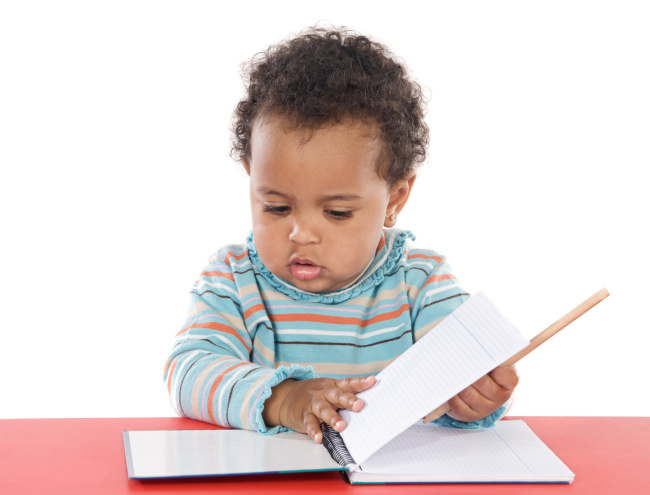Did you know, between birth and age three, the brain develops faster than any other period in one’s lifespan? This is when trillions of connections, called synapses, are created between the brain cells. But for these connections to be created, the brain needs to be stimulated again and again. Reading and telling stories are a great way to do so, here’s how:
Have fun!
When it comes to stories and books, the bottom line is that there is no right or wrong way to use books with babies and toddlers. It is more about enjoying the time you spend together and following their lead in deciding what to try next. Babies and toddlers thrive on playfulness, rhyme, rhythm and repetition. Have lots of light-hearted, language-filled interactions with books and read books that are your child’s favourites again and again!
The basics of booksharing with little ones
- Although you can read anywhere, it’s best to relax and sit comfortably with your child on your lap, or next to you, when you share books. Engage with them throughout the story, make funny sounds, cuddle them and encourage them. This will help them make the positive association between books and love from early on.
- The duration of your reading time doesn’t matter; you don’t even have to finish the book. Explore a book and communicate together about it for as short or as long as you both want. Simply exposing them each day to reading in a positive way is enough to nurture that activity at home.
- Make sure that there are times when babies and toddlers can look at books on their own. Board books have rounded corners so that they cannot hurt your child and they are specially made to be chewed, patted and dropped!
- Talking to your children about the pictures, concepts and events in the book is as important as reading the words on the page. Ask them what they think, and say what you think too. This teaches your child the logical skills necessary to make sense of a story – which is something they’ll use in daily life as they grow older.
- Listen to, acknowledge and respond to what your child says – this makes the experience interesting for both of you. It also helps grow your child’s language, confidence and self-esteem. At this stage, remember that reading is a very interactive experience. The child looks to you as the commentator of the story.
- Understanding you child’s interests is crucial. Offer your child a choice of books and then be guided by what they want to read. Start by asking, “Shall we look at or read this book?”. Babies and toddlers have moods and prefer some things to others – just like us! Their level of interest in a book will depend on a number of things: what things they like, the time of day and whether they are hungry, tired or have a wet nappy.
- Regardless of the day , the child or the book – persistence is key. If your child seems disinterested, don’t give up. Try again later, or read the story in another way. At some point, your baby will find the stories they love. All you need to do is help find and nurture that interest, for their personal growth and their success at school.
For more tips of reading with your baby or to download your free tip sheet on reading with babies and toddlers (available in 6 South African languages), visit www.nalibali.org
Latest posts by Contributor (see all)
- Practical advice for keeping your toddler safe around the pool - December 18, 2014
- Is your pool toddler-proof? - December 18, 2014
- Is it worth it? - December 18, 2014
-
No Comments" href="https://all4baby.co.za/pregnancy/planning-for-baby/2754/working-baby-expo-circuit/">

Working the baby expo circuit
-
No Comments" href="https://all4baby.co.za/babies-6-12-months/health-hygiene-illness/2736/baby-gone-off-solid-foods/">

Why has my baby gone off solid foods?
-
No Comments" href="https://all4baby.co.za/toddlers-1-2-years/learning-development-1-2-years/2730/real-life-toddler-easily-distracted/">

Real life: My toddler is easily distracted
-
No Comments" href="https://all4baby.co.za/toddlers-1-2-years/toddler-issues/2725/advice-mom-whos-toddler-not-speaking/">

Advice for a mom whose toddler is not speaking


 Saving...
Saving...